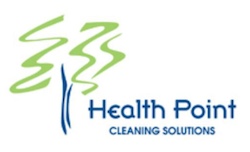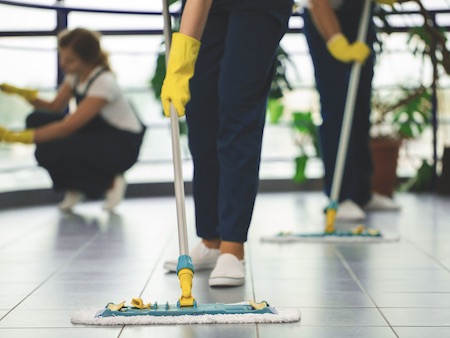Minnesota commercial cleaning regulations are designed to ensure safe and hygienic business environments. These rules cover various aspects of cleaning practices, from proper disinfection techniques to waste management. Understanding and following these regulations is crucial for commercial cleaning businesses operating in the state.
Table of Contents
Minnesota commercial cleaning regulations are designed to ensure safe and hygienic business environments. These rules cover various aspects of cleaning practices, from proper disinfection techniques to waste management. Understanding and following these regulations is crucial for commercial cleaning businesses operating in the state.
Key takeaways:
- Commercial cleaning businesses in Minnesota must adhere to state and local regulations
- Proper licensing and insurance are required for operating a cleaning business
- Safety protocols and proper chemical handling are essential components of compliance
- Regular training and updates on regulations are necessary for cleaning staff
- Environmental considerations play a role in Minnesota’s commercial cleaning regulations
Understanding the Basics of Minnesota Commercial Cleaning Regulations
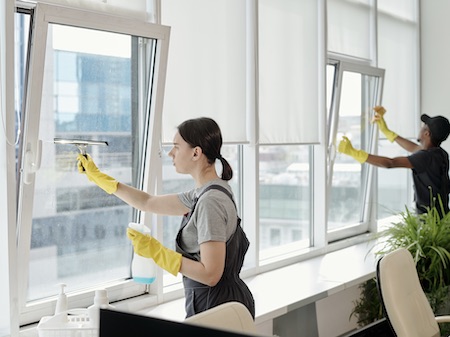
Commercial cleaning regulations in Minnesota are put in place to protect both workers and the public. These rules cover a wide range of topics, including safety procedures, chemical usage, and environmental considerations. For cleaning businesses operating in the state, it’s important to stay up-to-date with these regulations to ensure compliance and maintain a good reputation. In addition to following commercial cleaning regulations, businesses in Minnesota can also benefit from staying informed about seasonal cleaning tips. By understanding how different weather conditions and environmental factors can impact cleaning practices, businesses can adapt their methods to ensure the best results for their clients. Incorporating seasonal cleaning tips into their regular practices can also help businesses showcase their expertise and dedication to providing high-quality services.
Licensing requirements for commercial cleaning businesses
To operate a commercial cleaning business in Minnesota, you need to obtain the proper licenses and permits. The specific requirements may vary depending on the size of your business and the types of services you offer. Generally, you’ll need to register your business with the state and obtain a tax ID number.
Insurance considerations for cleaning companies
Insurance is a crucial aspect of running a commercial cleaning business in Minnesota. Not only does it protect your company from potential liabilities, but it’s also often required by clients. At a minimum, you should have general liability insurance and workers’ compensation coverage for your employees.
Safety Protocols in Minnesota Commercial Cleaning Regulations
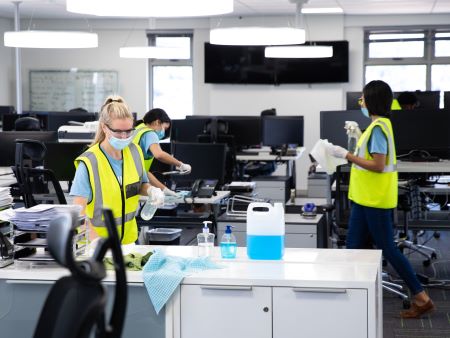
Safety is paramount in the commercial cleaning industry. Minnesota regulations require businesses to implement and maintain safety protocols to protect cleaning staff and building occupants.
Personal protective equipment (PPE) requirements
Minnesota regulations mandate the use of appropriate personal protective equipment for cleaning staff. This includes gloves, eye protection, and in some cases, respiratory protection. The specific PPE required may vary depending on the cleaning tasks and chemicals used.
Proper chemical handling and storage
Cleaning chemicals can be hazardous if not handled correctly. Minnesota commercial cleaning regulations require proper labeling, storage, and disposal of cleaning chemicals. Staff must be trained on handling procedures and potential hazards associated with each product.
Environmental Considerations in Commercial Cleaning
Minnesota has a strong focus on environmental protection, which extends to the commercial cleaning industry. Regulations encourage the use of eco-friendly cleaning products and methods to minimize environmental impact.
Green cleaning practices
Many businesses in Minnesota are moving towards green cleaning practices. While not always mandated by law, these practices are often encouraged and can help companies comply with broader environmental regulations.
Waste management and disposal
Proper waste management is a critical aspect of commercial cleaning regulations in Minnesota. This includes the correct disposal of cleaning materials, as well as the handling of waste generated during the cleaning process.
Training and Certification for Cleaning staff
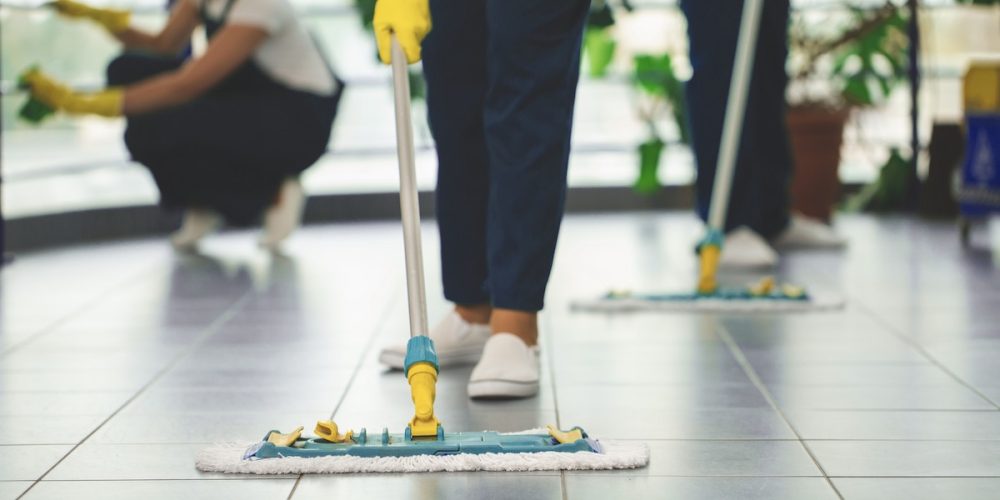
To ensure compliance with regulations, cleaning staff must receive proper training. Minnesota commercial cleaning regulations this include understanding safety protocols, chemical handling, and proper cleaning techniques.
OSHA compliance in commercial cleaning
The Occupational Safety and Health Administration (OSHA) sets standards for workplace safety that apply to the cleaning industry. Minnesota regulations often align with or exceed OSHA standards, making compliance crucial for cleaning businesses.
Ongoing education and updates
Regulations can change over time, so it’s important for cleaning businesses to stay informed about any updates or new requirements. Regular training sessions and updates for staff can help ensure ongoing compliance.
Specific Regulations for Different Types of Facilities
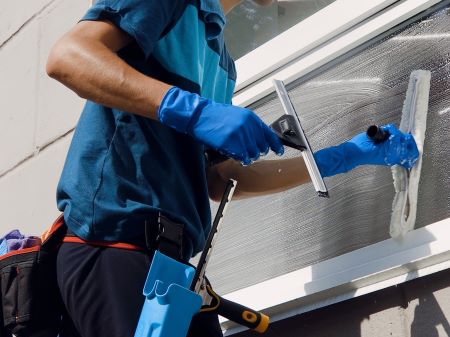
Different types of facilities may have additional regulations specific to their industry. For example, healthcare facilities have stricter cleaning and disinfection requirements compared to standard office buildings.
Healthcare facility cleaning regulations
Cleaning healthcare facilities in Minnesota requires adherence to specific regulations designed to prevent the spread of infections. This includes using approved disinfectants and following strict cleaning protocols.
Food service establishment cleaning rules
Minnesota commercial cleaning regulations for food service establishments in Minnesota are particularly stringent to ensure food safety. These rules cover everything from kitchen sanitation to proper handling of cleaning equipment used in food preparation areas.
Compliance and Inspections
Commercial cleaning businesses in Minnesota may be subject to inspections to ensure compliance with regulations. Minnesota commercial cleaning regulations these inspections can be conducted by various state and local agencies.
Preparing for regulatory inspections
To prepare for potential inspections, cleaning businesses should maintain detailed records of their cleaning practices, staff training, and any incidents or complaints. Regular self-audits can help identify and address any compliance issues before an official inspection.
Consequences of non-compliance
Failing to comply with Minnesota’s commercial cleaning regulations can result in fines, loss of licenses, or even legal action. Businesses must take these regulations seriously and make compliance a priority.
Technology and Innovation in Regulatory Compliance
Advancements in technology are making it easier for cleaning businesses to comply with regulations. Digital tools can help with record-keeping, training, and monitoring cleaning practices.
Software solutions for regulation tracking
There are now software solutions specifically designed to help cleaning businesses track and manage regulatory compliance. These tools can provide updates on new regulations and help businesses stay organized.
Innovative cleaning technologies and regulatory approval
As new cleaning technologies emerge, they must be evaluated for compliance with existing regulations. Minnesota commercial cleaning regulations often work with industry leaders to ensure that innovative cleaning methods meet safety and environmental standards.
Industry Best Practices Beyond Regulations
While regulations set the minimum standards, many cleaning businesses in Minnesota go beyond these requirements to provide the best possible service to their clients.
Exceeding minimum regulatory requirements
By implementing best practices that exceed regulatory minimums, cleaning businesses can differentiate themselves in the market and build trust with clients.
Building a culture of compliance and quality
Creating a company culture that values compliance and quality can help ensure that regulations are followed consistently, even when supervisors aren’t present.
Challenges in Regulatory Compliance for Small Businesses
Small cleaning businesses in Minnesota may face unique challenges in complying with regulations due to limited resources and staff.
Resource allocation for regulatory compliance
Small businesses often need to be creative in allocating resources to ensure regulatory compliance without breaking the bank.
Strategies for small business compliance
Networking with other cleaning businesses, joining industry associations, and utilizing free resources from state agencies can help small businesses stay compliant without overspending.
Future Trends in Minnesota Commercial Cleaning Regulations
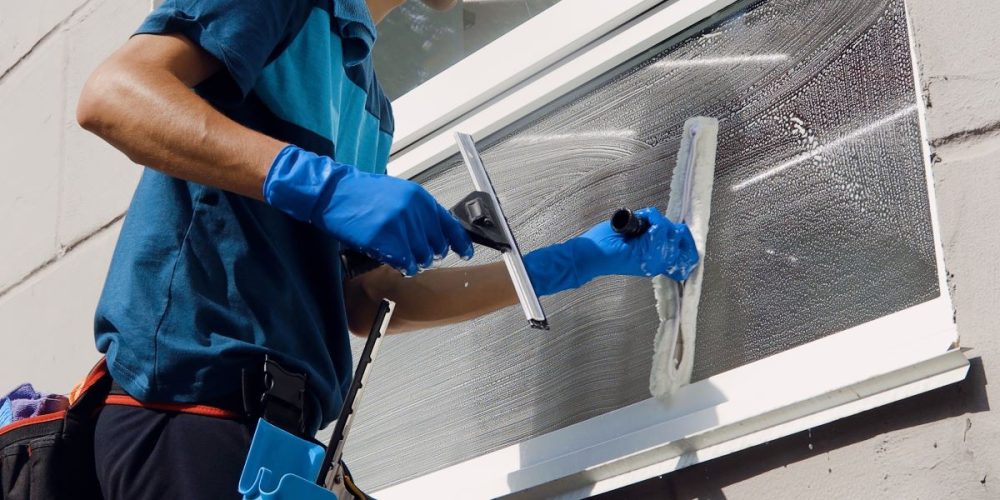
As the cleaning industry evolves, so do the regulations that govern it. Staying ahead of these trends can help businesses prepare for future compliance requirements.
Anticipated regulatory changes
While it’s impossible to predict all future changes, trends suggest that environmental considerations and worker safety will continue to be key areas of focus for regulators.
Preparing for future compliance needs
Businesses that stay informed about industry trends and maintain flexibility in their operations will be best positioned to adapt to new regulations as they arise.
Importance of Local Knowledge in Regulatory Compliance
Understanding Minnesota-specific regulations is crucial for cleaning businesses operating in the state. Local knowledge can help businesses navigate unique requirements and cultural expectations.
Minnesota-specific cleaning standards
Some cleaning standards in Minnesota may differ from national norms due to local climate conditions or cultural preferences. Understanding these nuances is important for compliance and customer satisfaction.
Networking with local industry professionals
Building relationships with other cleaning professionals in Minnesota can provide valuable insights into local regulatory practices and help businesses stay informed about changes.
Common Cleaning Chemicals and Their Regulatory Considerations
| Chemical Type | Safety Requirements | Environmental Considerations | Disposal Regulations |
|---|---|---|---|
| Bleach-based cleaners | Proper ventilation, PPE | Potential water contamination | Dilution before disposal |
| Ammonia-based cleaners | Avoid mixing with bleach, PPE | Air quality concerns | Controlled disposal |
| Green certified cleaners | Minimal PPE | Low environmental impact | Standard disposal |
| Disinfectants | Follow contact time, PPE | Potential for bacterial resistance | Follow manufacturer guidelines |
| Degreasers | Chemical-resistant gloves | Oil/water separation | Hazardous waste disposal |
Regulatory Compliance Checklist for Minnesota Commercial Cleaning Businesses
| Compliance Area | Requirements | Frequency of Review |
|---|---|---|
| Business Licensing | State and local permits | Annual renewal |
| Insurance Coverage | General liability, workers’ comp | Annual review |
| Staff Training | Safety protocols, chemical handling | Quarterly updates |
| Chemical Management | Proper storage and labeling | Monthly inventory |
| Equipment Maintenance | Regular inspections and repairs | Weekly checks |
| Waste Disposal | Adherence to local regulations | Ongoing monitoring |
| Record Keeping | Maintain cleaning logs and incident reports | Daily updates |
| Environmental Practices | Use of eco-friendly products when possible | Bi-annual assessment |
Key Steps for Minnesota Commercial Cleaning Regulations Compliance:
- Regularly review and update company policies to reflect current regulations
- Conduct periodic internal audits to identify areas for improvement
- Provide ongoing training for all staff members on regulatory requirements
- Stay informed about industry news and regulatory changes
- Maintain open communication with regulatory bodies and industry associations
- Implement a system for tracking and documenting compliance efforts
- Encourage employee feedback on safety and compliance issues
- Review client contracts to ensure they align with current regulations
- Invest in technology that aids in compliance management
- Develop a rapid response plan for addressing any compliance violations
By following these steps and staying informed about Minnesota’s commercial cleaning regulations, businesses can ensure they operate safely, legally, and effectively in the state’s cleaning industry. For more information, you can visit our website or contact us.
